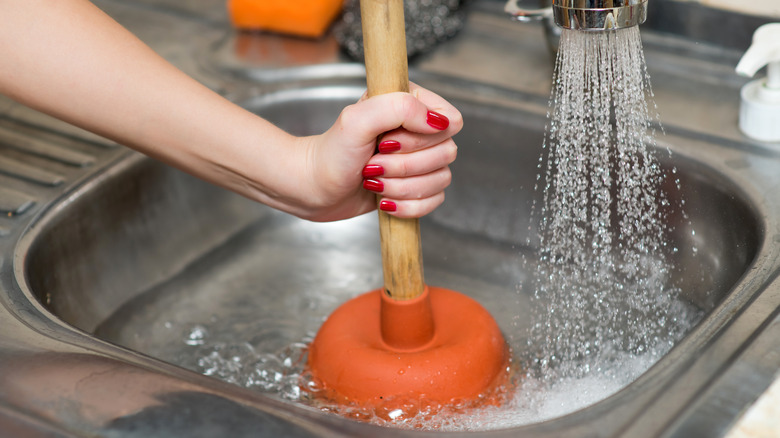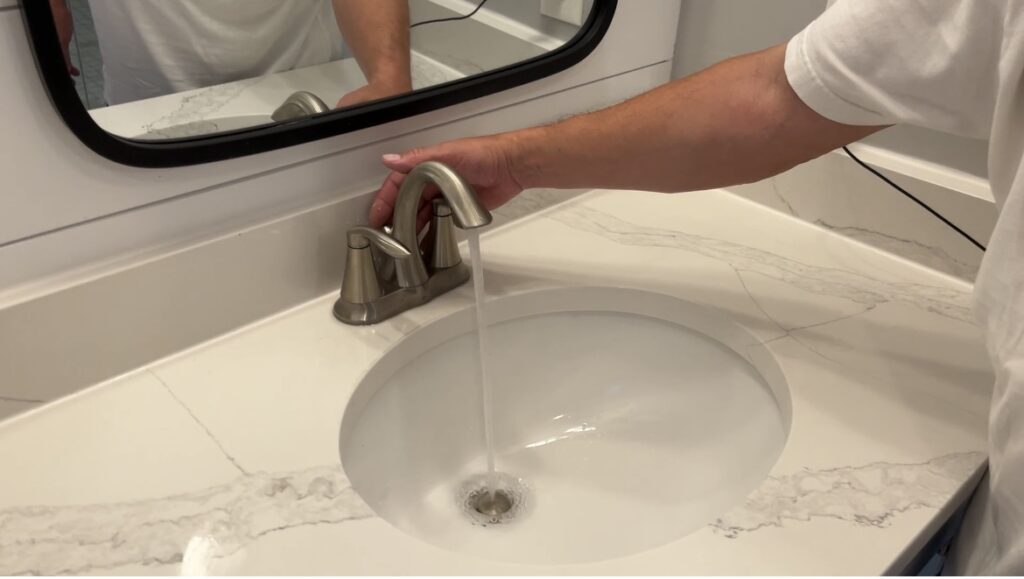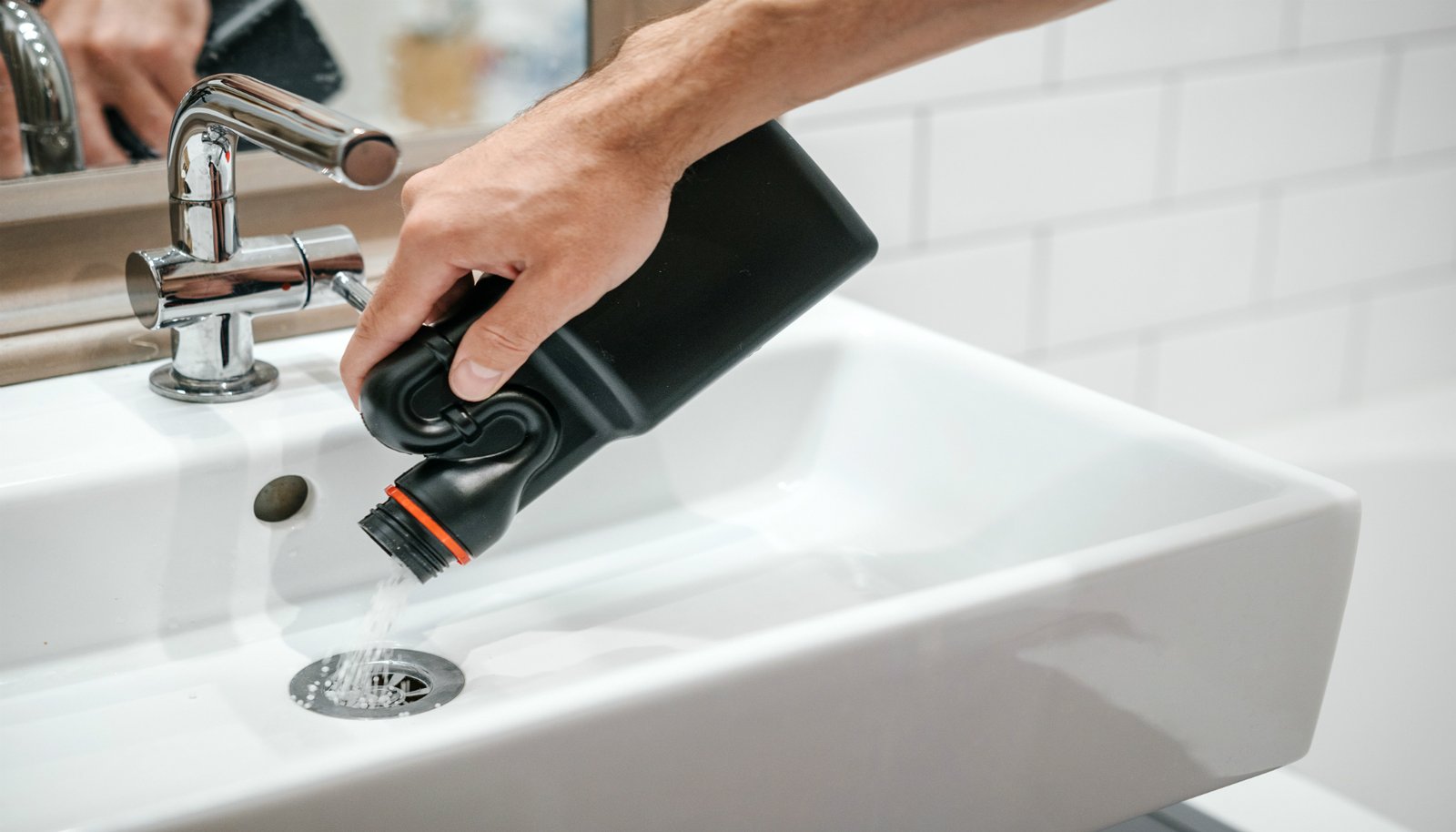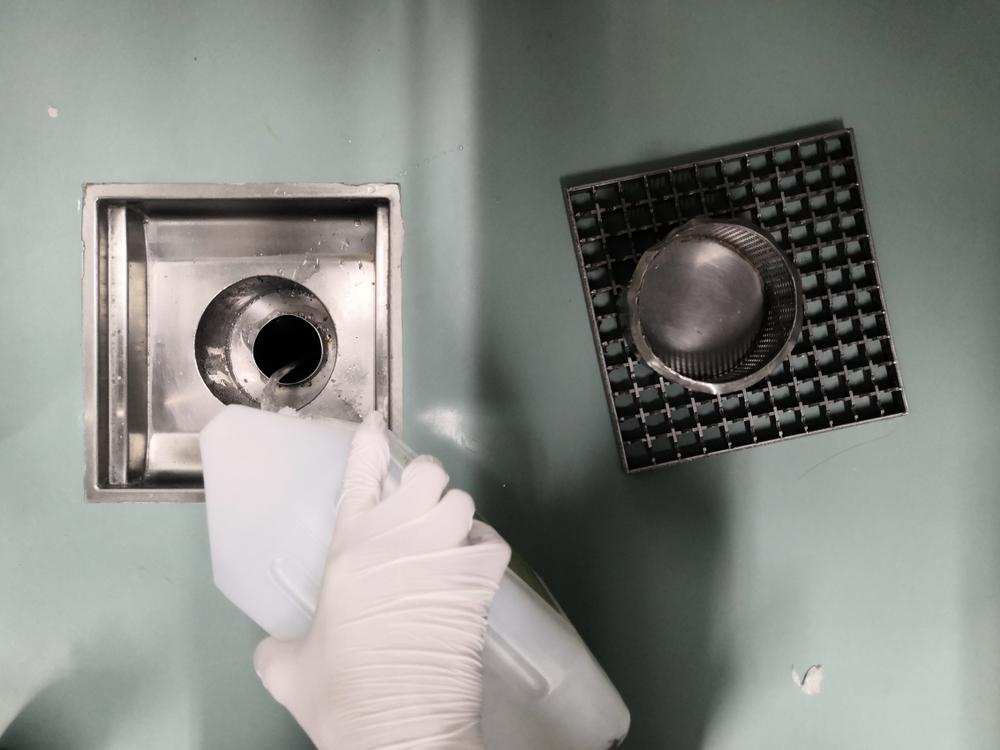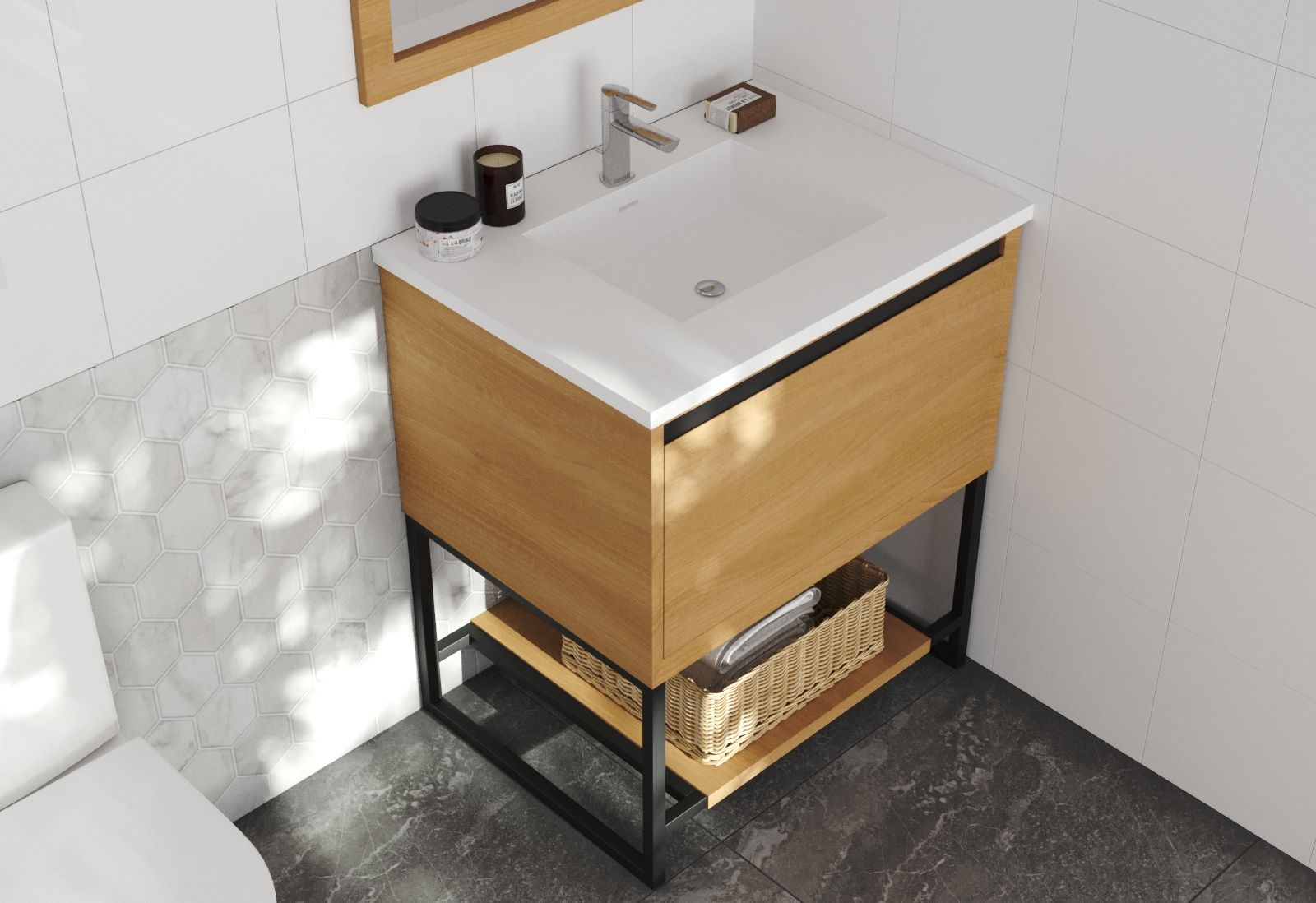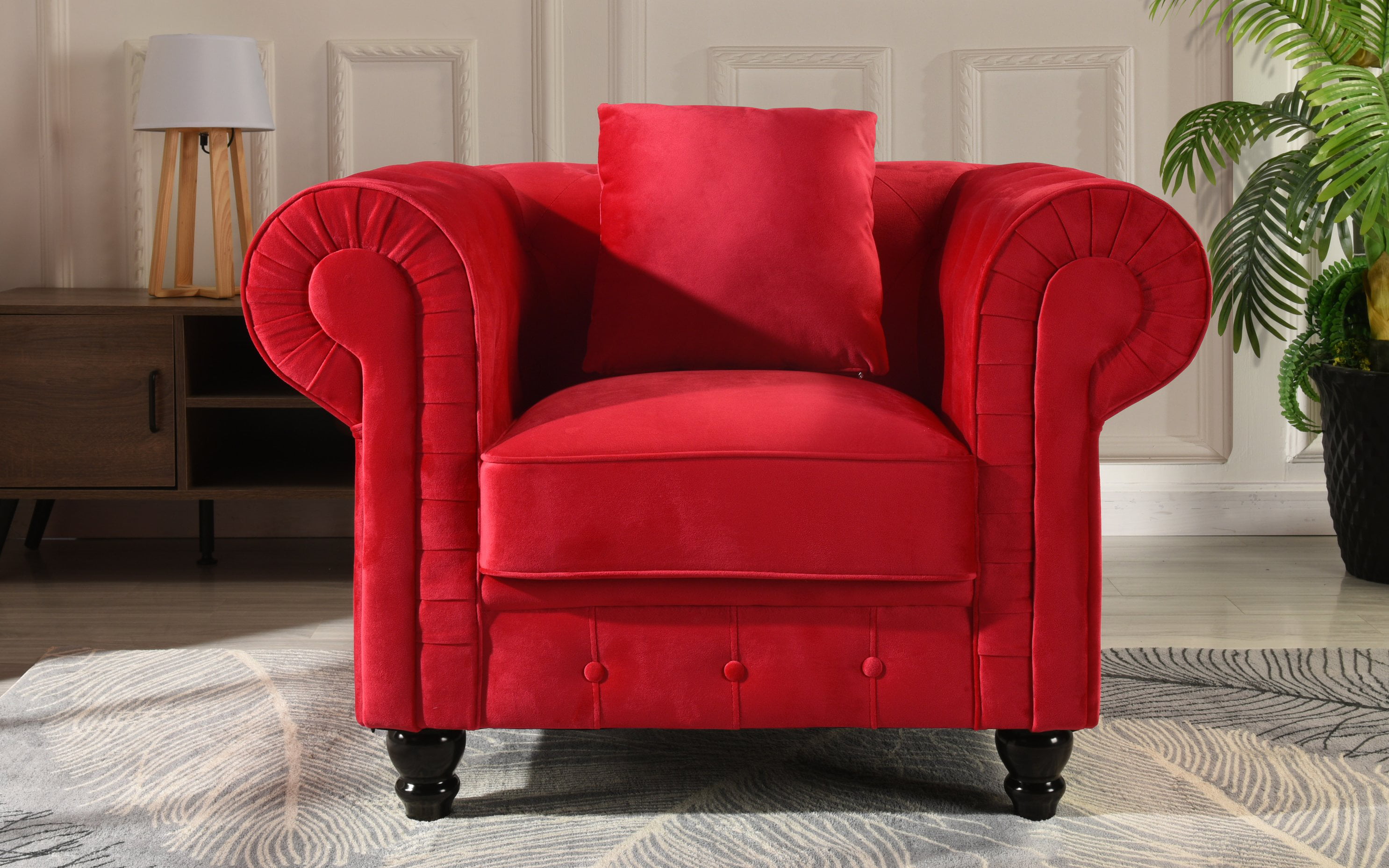If you've noticed that your bathroom sink is draining very slowly, it's important to address the issue as soon as possible. A slow-draining sink can be a major inconvenience and can even lead to more serious plumbing problems down the line. Luckily, there are several DIY solutions for unclogging a bathroom sink that can save you time and money. Before getting started, it's important to determine the cause of the slow drain. This will help you choose the best method for unclogging your sink.Unclogging a Bathroom Sink
If you're dealing with a slow-draining bathroom sink, there are several steps you can take to fix the problem. The first step is to remove the sink stopper and clean it thoroughly. Hair and debris often get caught in the stopper, causing the sink to drain slowly. You can also use a wire hanger or drain snake to remove any blockages from the drain. If the problem persists, it may be due to a clog in the P-trap, which is the curved pipe under the sink. To clear this clog, you can use a plunger or a mixture of baking soda and vinegar. Simply pour the mixture down the drain, let it sit for a few minutes, and then flush it with hot water.How to Fix a Slow-Draining Bathroom Sink
If the above methods don't work, there are a few other DIY solutions you can try. One option is to use a mixture of salt, baking soda, and boiling water. This can help break up any buildup in the drain and improve the flow of water. Another method is to use a plumbing snake or auger. These tools can reach deep into the pipes to dislodge any stubborn clogs. It's important to follow the instructions carefully and wear gloves while using these tools.DIY Solutions for a Slow-Draining Bathroom Sink
Understanding the causes of a slow-draining bathroom sink can help you prevent the issue from happening in the future. One common cause is hair and debris getting caught in the drain. To prevent this, consider using a drain cover to catch any hair before it goes down the drain. Another cause can be an accumulation of soap scum and toothpaste in the pipes. Regularly cleaning your sink and using a mixture of baking soda and vinegar can help prevent this buildup.Causes of a Slow-Draining Bathroom Sink
If your bathroom sink is completely clogged and none of the above methods are working, it may be time to call in a professional plumber. They have the tools and expertise to clear stubborn clogs and get your sink draining properly again. It's important to address a clogged sink as soon as possible to prevent any further damage to your plumbing system. Ignoring the issue can lead to leaks, water damage, and even more costly repairs.Clearing a Clogged Bathroom Sink
To prevent a slow-draining bathroom sink, there are a few simple steps you can take. First, avoid pouring grease or oil down the drain, as they can solidify and cause clogs. Also, regularly clean your sink and use a drain cover to catch any hair and debris. Additionally, try to avoid using chemical drain cleaners too often. While they may seem like a quick fix, they can actually damage your pipes and cause more harm than good.Tips for Preventing a Slow-Draining Bathroom Sink
If you're not comfortable tackling a slow-draining sink on your own, you can always call in a professional plumber. They have the tools and expertise to quickly and effectively clear any clogs and get your sink draining properly again. Professional plumbers can also offer advice on how to prevent future clogs and keep your sink running smoothly. It's always a good idea to have a reliable plumber on hand for any plumbing issues that may arise in your home.Professional Solutions for a Slow-Draining Bathroom Sink
If you're planning on tackling a slow-draining bathroom sink on your own, there are a few common tools you may need. These include a plunger, a plumbing snake or auger, and a mixture of baking soda and vinegar. It's also helpful to have gloves and a drain cover on hand. It's important to carefully follow the instructions for these tools and take necessary safety precautions. If you're unsure of how to use any of these tools, it's best to call in a professional plumber.Common Tools for Unclogging a Bathroom Sink
A plunger is a common tool for unclogging a bathroom sink. To use a plunger, first remove the sink stopper and fill the sink with enough water to cover the rubber end of the plunger. Place the plunger over the drain and vigorously push up and down to create suction. This can help dislodge any blockages in the pipes. If using a plunger doesn't work, you may need to try another method or call in a professional plumber for help.How to Use a Plunger on a Slow-Draining Bathroom Sink
Chemical drain cleaners can be a tempting solution for a slow-draining bathroom sink, but they should only be used as a last resort. These cleaners can be harsh on your pipes and can even cause more serious plumbing issues if used too often. If you do choose to use a chemical drain cleaner, be sure to follow the instructions carefully and use protective gear. It's also important to avoid using them too frequently and address any underlying issues that may be causing the slow drain. In conclusion, a slow-draining bathroom sink can be a frustrating and inconvenient issue, but there are several DIY solutions and preventative measures you can take to keep your sink running smoothly. If the problem persists or becomes too difficult to handle on your own, don't hesitate to call in a professional plumber for assistance.Chemical Drain Cleaners for a Slow-Draining Bathroom Sink
Bathroom Sink Draining Very Slowly: A Common Plumbing Problem

The Importance of a Properly Functioning Sink
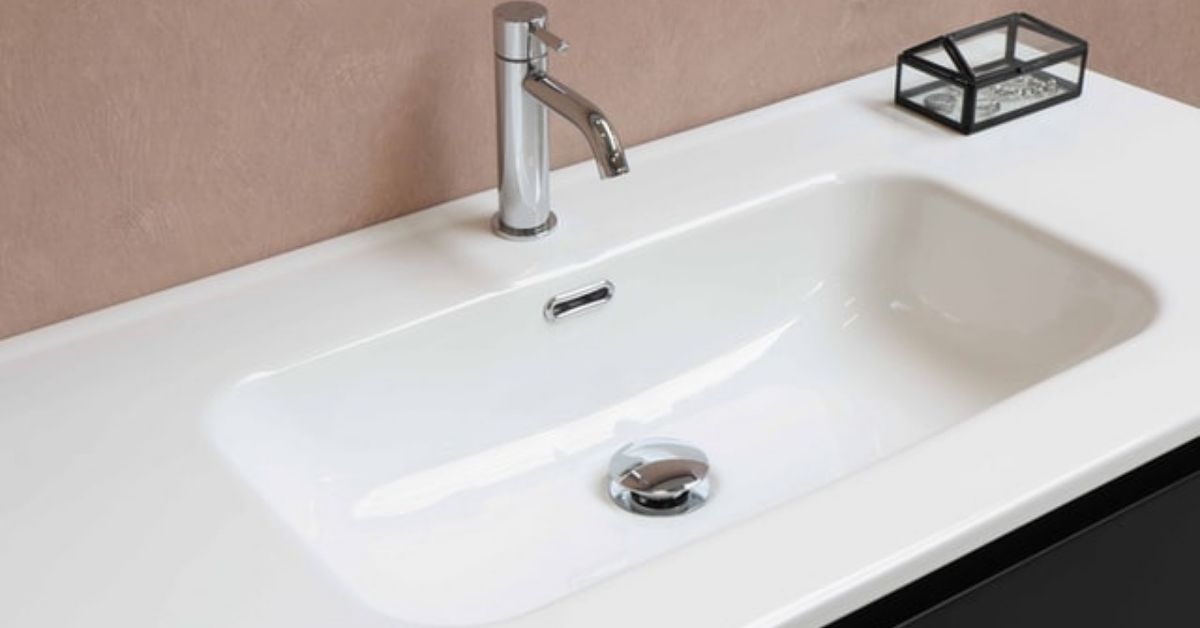 A sink is an essential component of any bathroom. It is where we wash our hands, brush our teeth, and clean our faces. It is also where we dispose of water used for various purposes, such as shaving or washing our hands. A properly functioning sink is crucial for maintaining good hygiene and keeping our bathroom clean and functional. However, when a sink starts draining very slowly, it can be frustrating and inconvenient. Not to mention, it can also be a sign of a larger plumbing issue that needs to be addressed.
A sink is an essential component of any bathroom. It is where we wash our hands, brush our teeth, and clean our faces. It is also where we dispose of water used for various purposes, such as shaving or washing our hands. A properly functioning sink is crucial for maintaining good hygiene and keeping our bathroom clean and functional. However, when a sink starts draining very slowly, it can be frustrating and inconvenient. Not to mention, it can also be a sign of a larger plumbing issue that needs to be addressed.
Common Causes of Slow Draining Sinks
 Slow draining sinks are a common plumbing issue that can occur in any household. There are several possible causes for this problem, and identifying the root cause is the first step in finding a solution. One of the most common reasons for a slow draining sink is a clogged drain. Over time, hair, soap scum, and other debris can build up in the drain and cause blockages. Another possible cause is a clogged or blocked vent pipe, which helps to regulate the air pressure in your plumbing system. If the vent pipe is clogged, it can cause water to drain slowly from your sink.
Slow draining sinks are a common plumbing issue that can occur in any household. There are several possible causes for this problem, and identifying the root cause is the first step in finding a solution. One of the most common reasons for a slow draining sink is a clogged drain. Over time, hair, soap scum, and other debris can build up in the drain and cause blockages. Another possible cause is a clogged or blocked vent pipe, which helps to regulate the air pressure in your plumbing system. If the vent pipe is clogged, it can cause water to drain slowly from your sink.
How to Fix a Slow Draining Sink
 If you have a slow draining sink, there are a few steps you can take to try and fix the problem yourself. The first step is to use a plunger to try and dislodge any clogs. Place the plunger over the drain and push down and pull up several times until the clog is cleared. If this doesn't work, you can also try using a drain snake to remove any stubborn blockages. If the issue persists, it may be best to call a professional plumber who can use specialized tools and techniques to clear the clog and get your sink draining properly again.
If you have a slow draining sink, there are a few steps you can take to try and fix the problem yourself. The first step is to use a plunger to try and dislodge any clogs. Place the plunger over the drain and push down and pull up several times until the clog is cleared. If this doesn't work, you can also try using a drain snake to remove any stubborn blockages. If the issue persists, it may be best to call a professional plumber who can use specialized tools and techniques to clear the clog and get your sink draining properly again.
Preventing Future Slow Draining Sinks
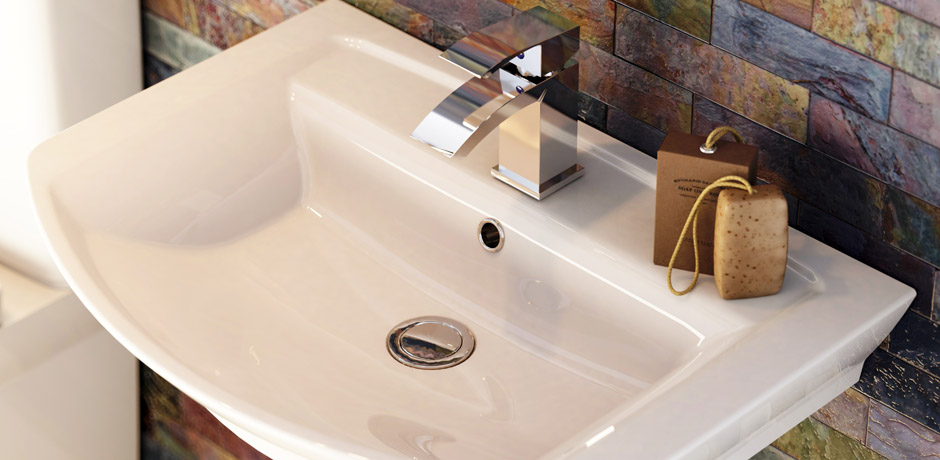 To avoid dealing with a slow draining sink in the future, there are a few preventative measures you can take. Avoid pouring oil, grease, and food scraps down the drain, as these can easily lead to clogs. You can also use a drain cover to catch any hair and debris before it goes down the drain. Regularly pouring hot water down the drain can also help to prevent build-up and keep your sink draining smoothly.
To avoid dealing with a slow draining sink in the future, there are a few preventative measures you can take. Avoid pouring oil, grease, and food scraps down the drain, as these can easily lead to clogs. You can also use a drain cover to catch any hair and debris before it goes down the drain. Regularly pouring hot water down the drain can also help to prevent build-up and keep your sink draining smoothly.
In Conclusion
 A slow draining sink may seem like a minor inconvenience, but it can be a symptom of a larger plumbing issue. It's essential to address the problem promptly to avoid further damage and ensure your bathroom sink stays functional. By understanding the common causes and taking preventative measures, you can keep your sink draining smoothly and maintain a clean and hygienic bathroom.
A slow draining sink may seem like a minor inconvenience, but it can be a symptom of a larger plumbing issue. It's essential to address the problem promptly to avoid further damage and ensure your bathroom sink stays functional. By understanding the common causes and taking preventative measures, you can keep your sink draining smoothly and maintain a clean and hygienic bathroom.





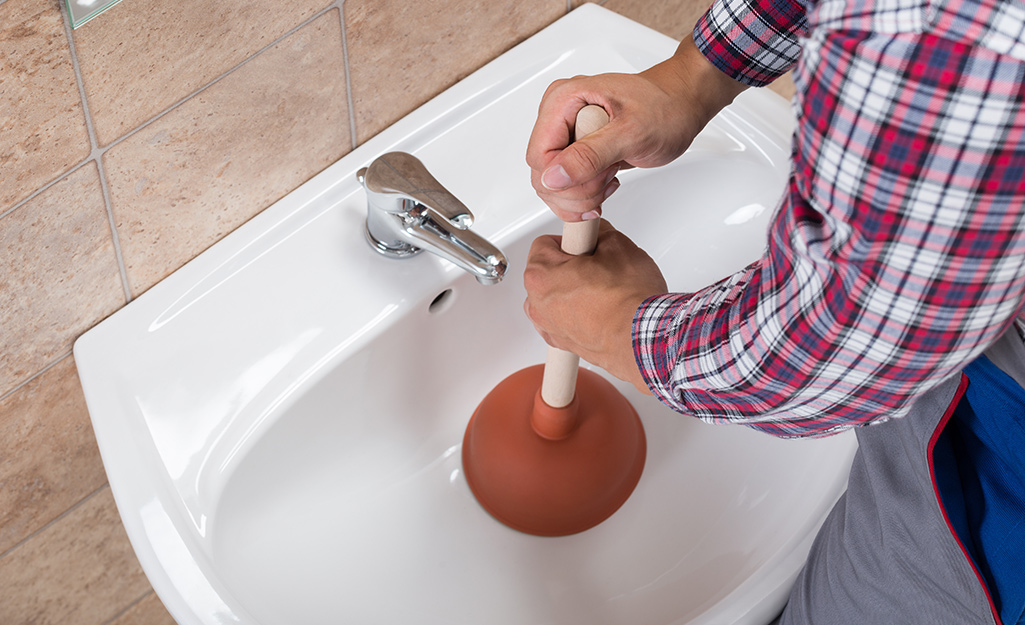
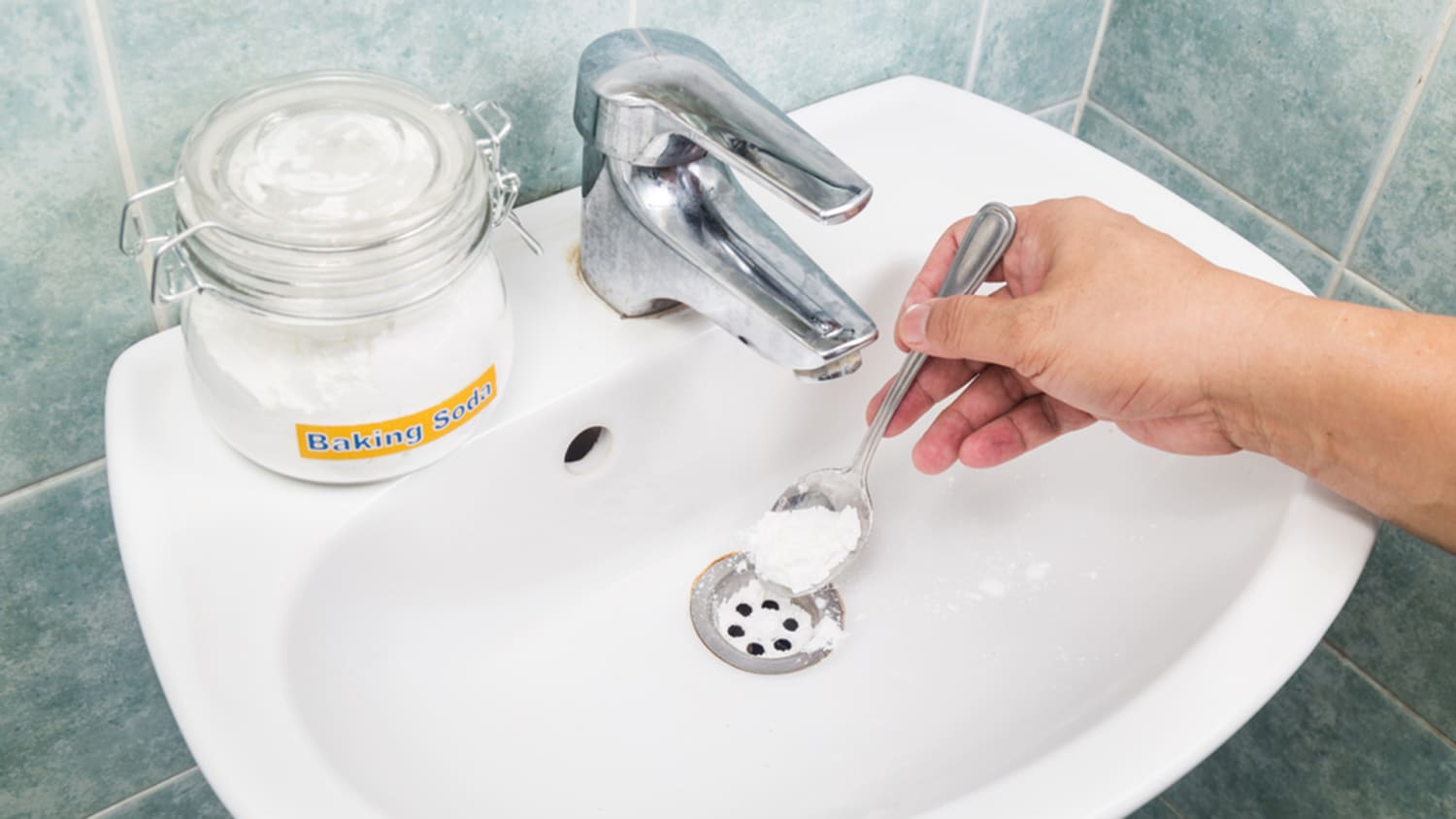



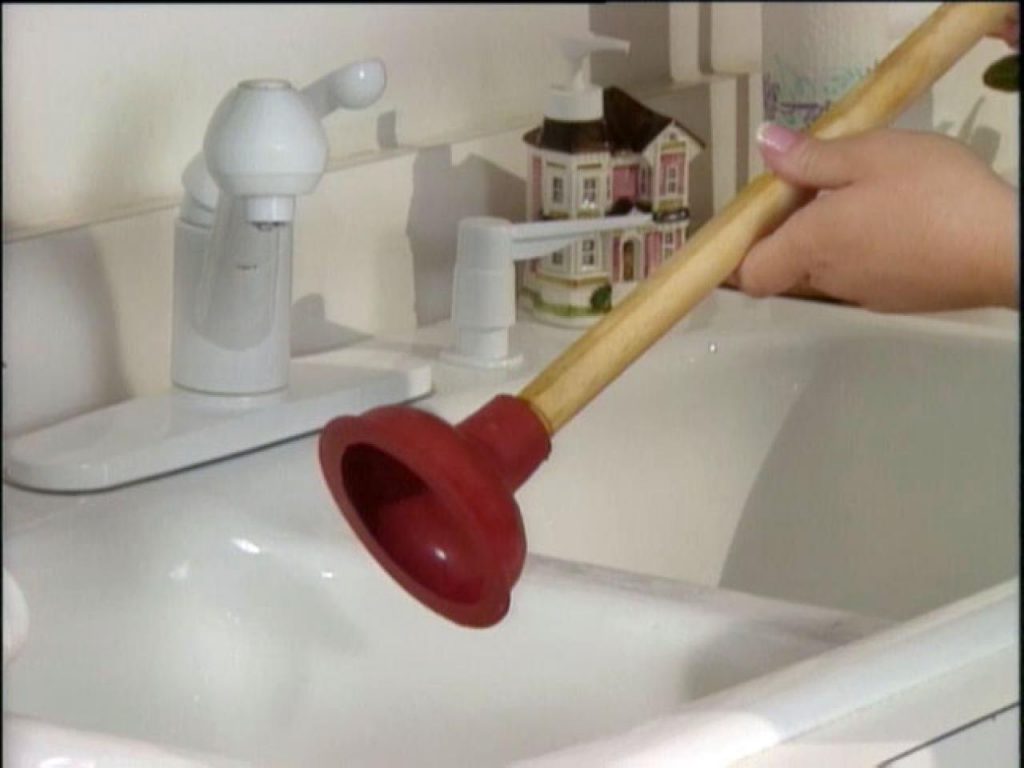










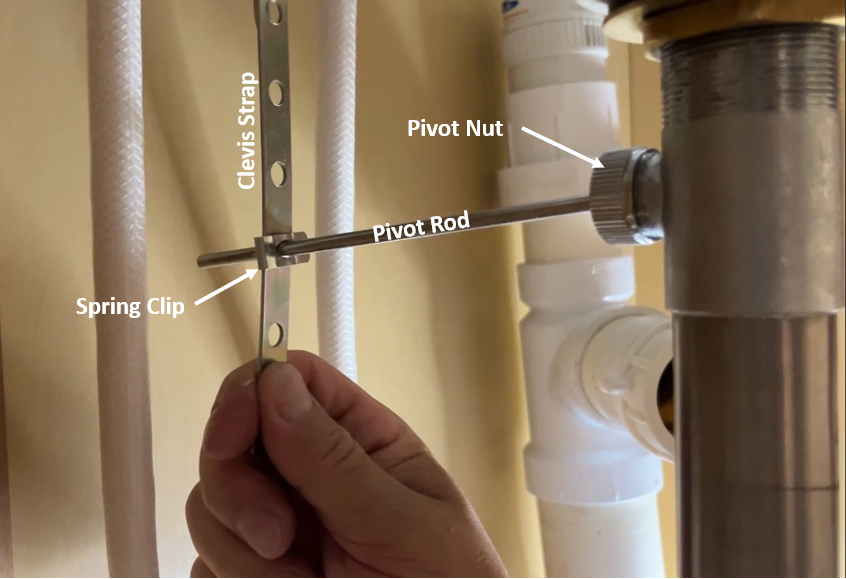





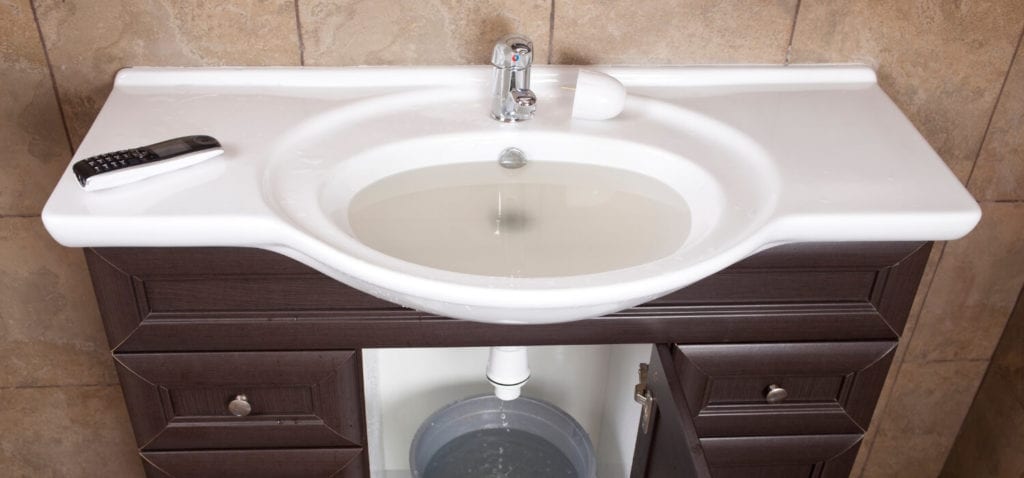
:max_bytes(150000):strip_icc()/Five-Ways-to-Fix-a-Slow-Sink-Drain-03-24c1f6dd477d46b9b5d1f70952a76933.jpg)

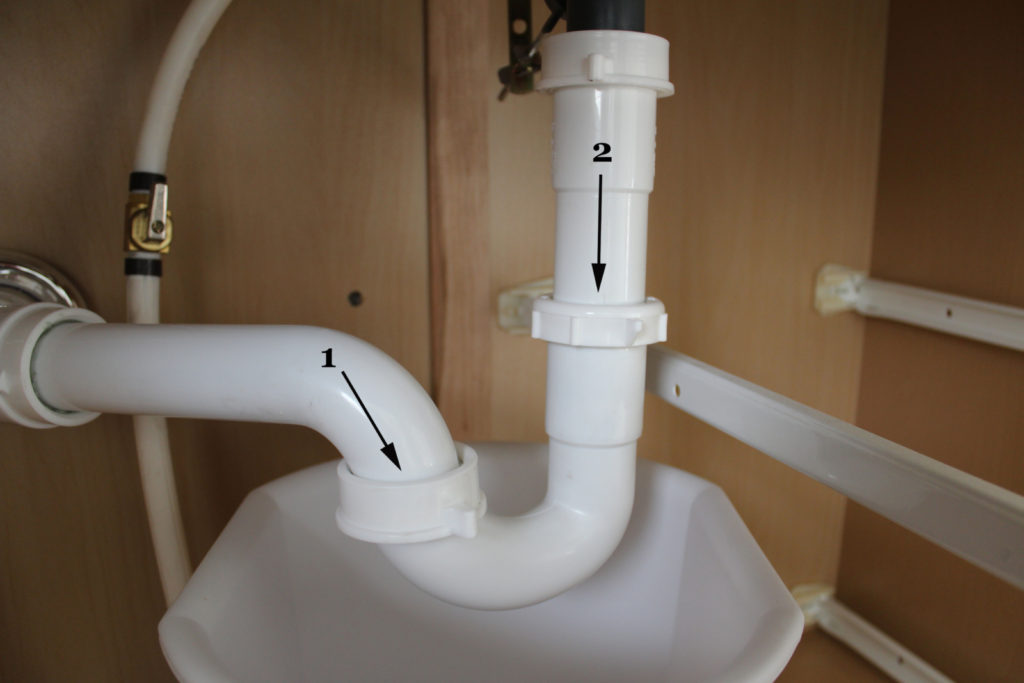


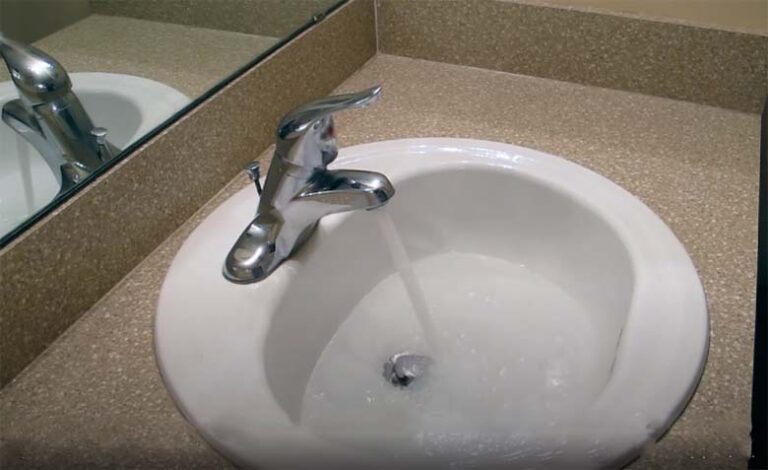




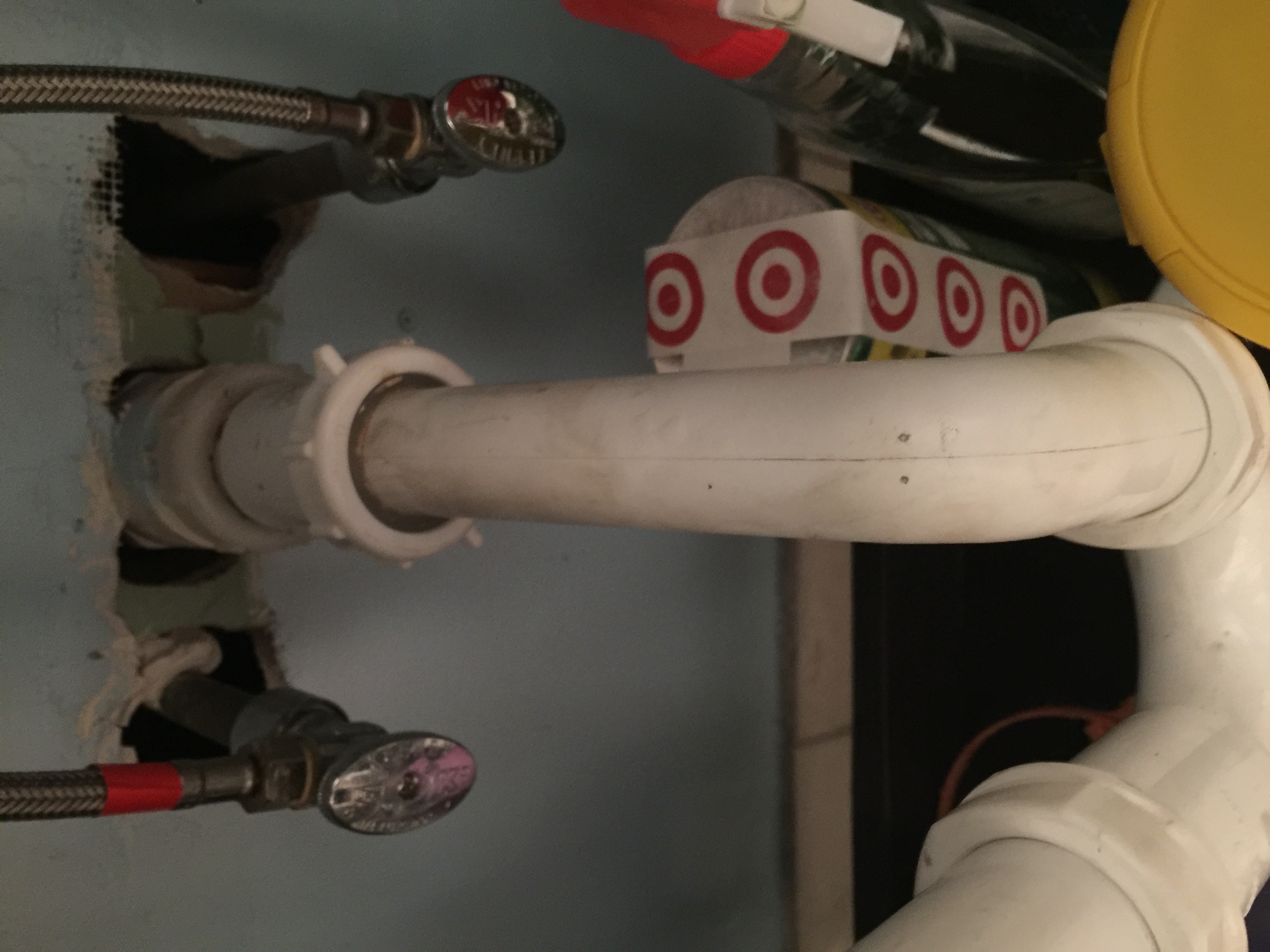





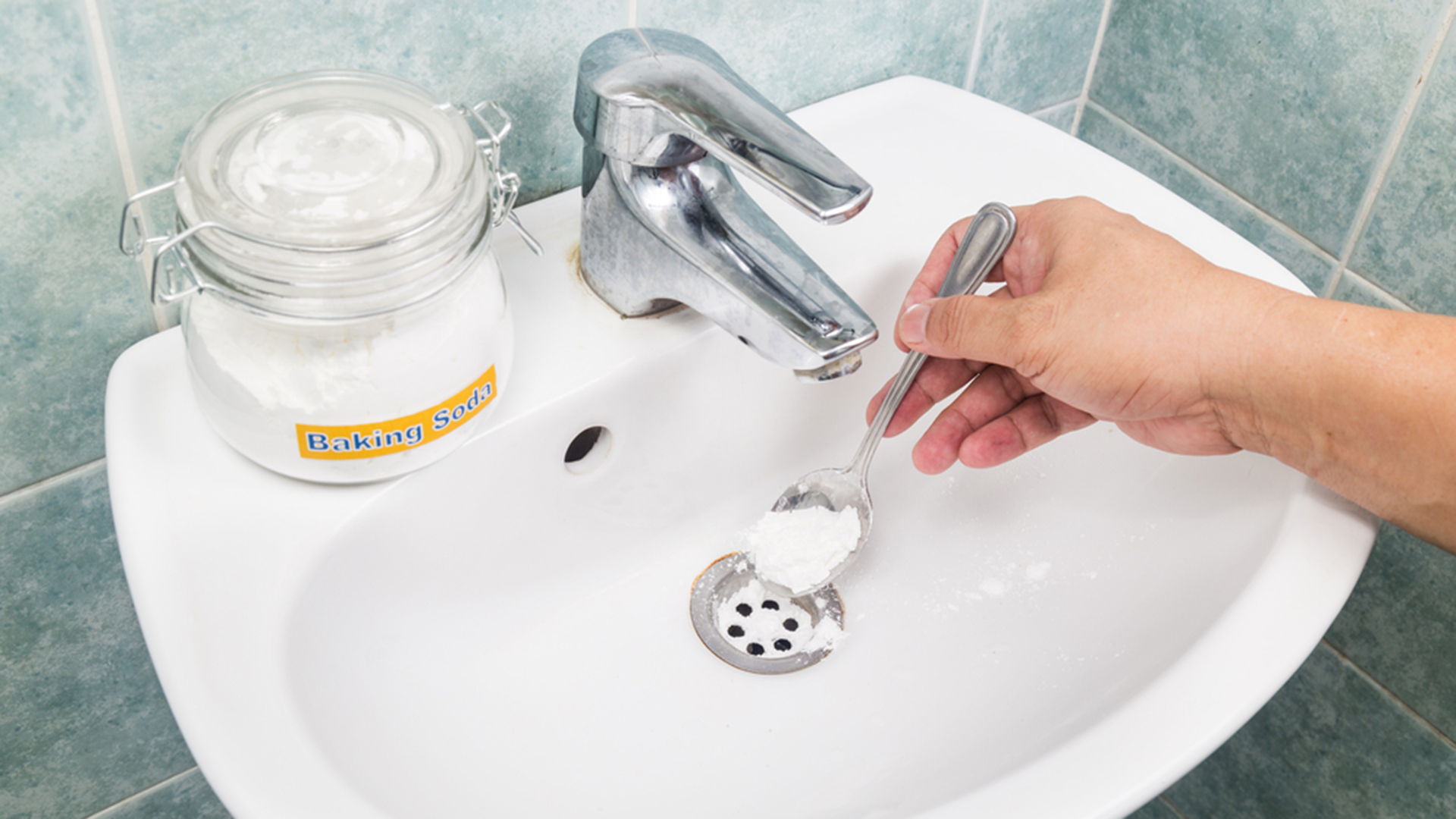



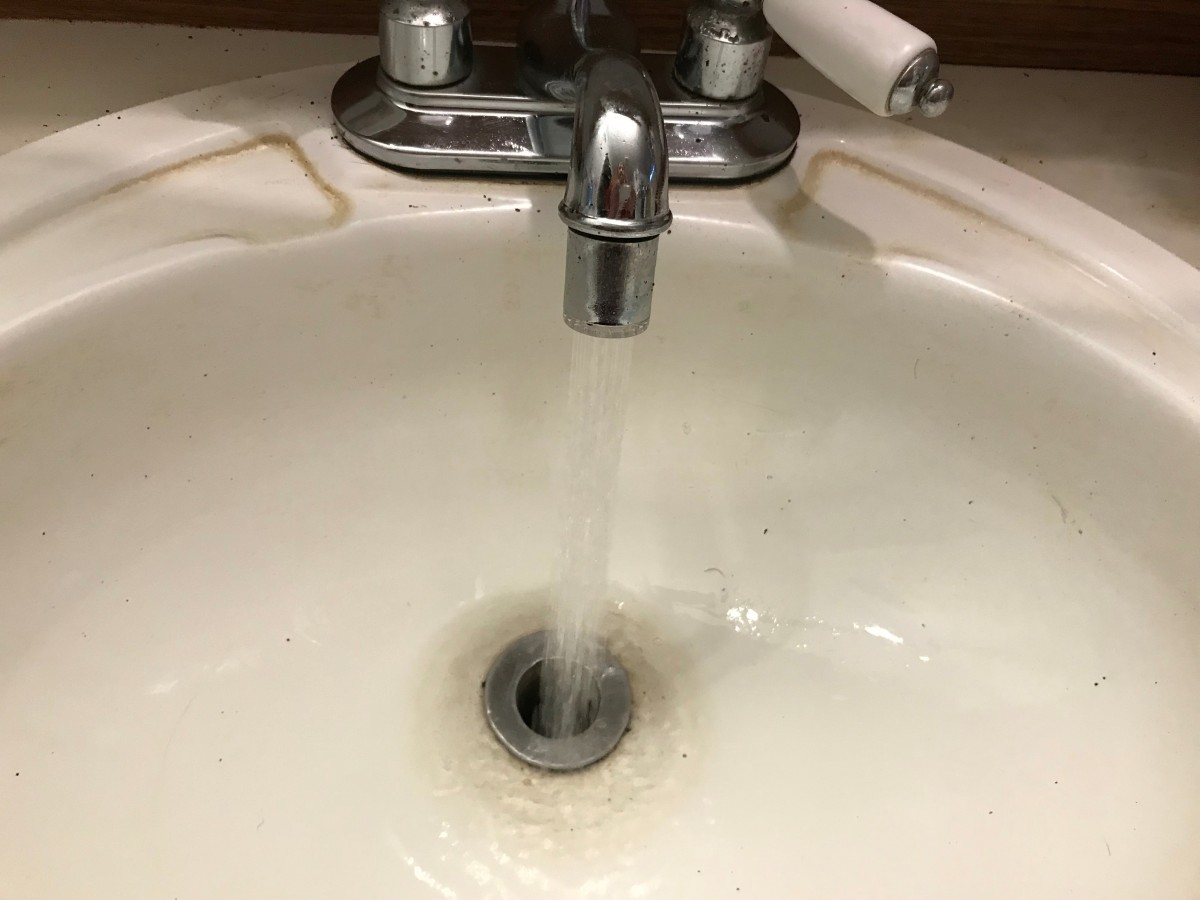









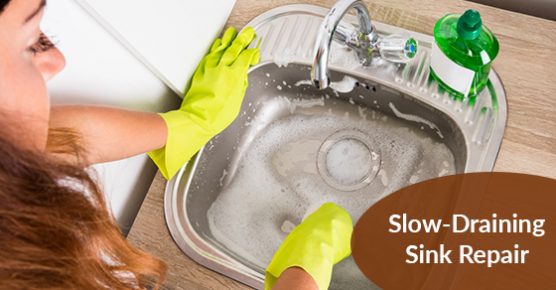




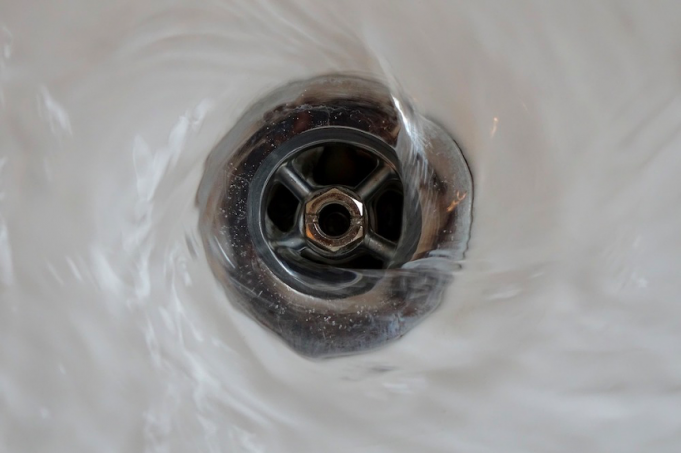





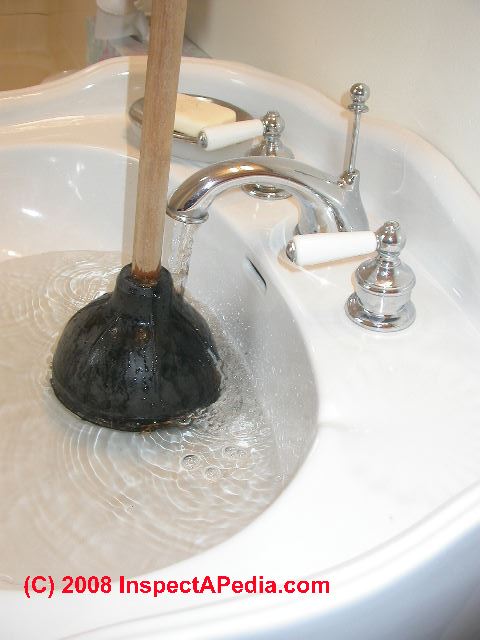

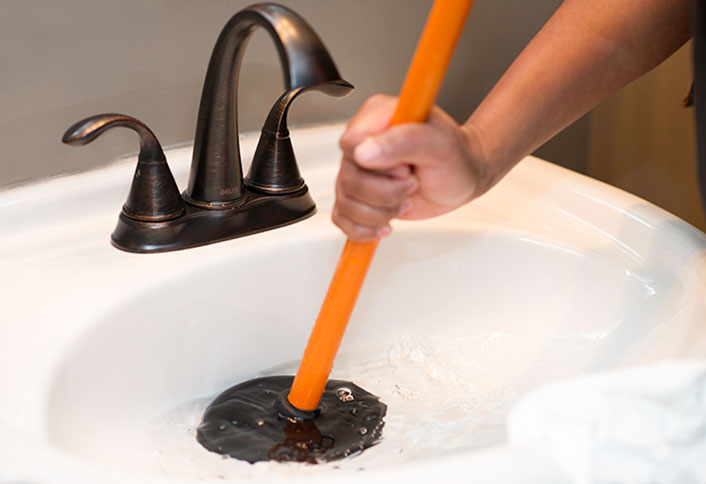
:max_bytes(150000):strip_icc()/how-to-unblock-a-sink-drain-2718782-04-b952ca2c61974eebbfd055d42495f539.jpg)
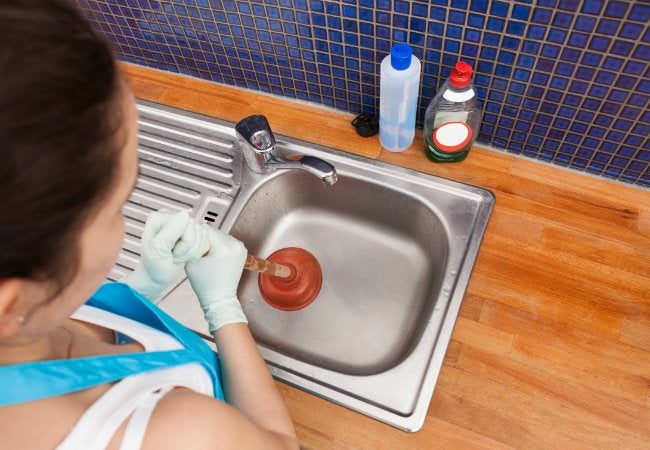
/woman-wearing-yellow-washing-up-gloves-to-unblock-sink-using-plunger-close-up-131987463-5887cfc03df78c2ccd92ec9e.jpg)
:max_bytes(150000):strip_icc()/Five-Ways-to-Fix-a-Slow-Sink-Drain-05-a5fceccbd5a64b1b8730ee1e24b81b4f.jpg)
